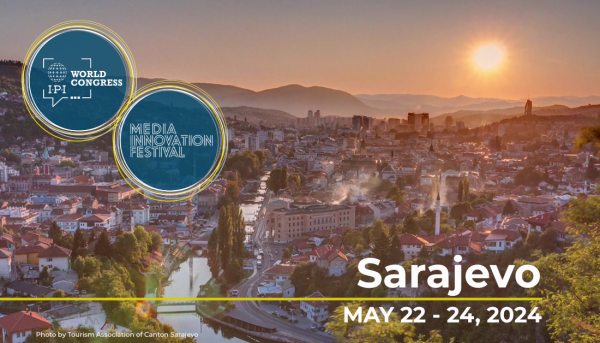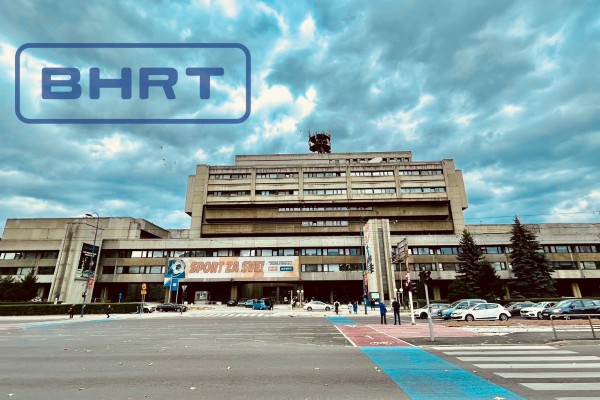Novaya Gazeta, the crusading Moscow newspaper that has paid a deadly price for its reporting during a period when the Kremlin has sought to rein in independent media, has been named winner of the International Press Institute’s 2009 Free Media Pioneer Award.
The award, announced to coincide with World Press Freedom Day on 3 May, recognises Novaya Gazeta’s focus on in-depth reporting at a time when many of Russia’s print and broadcast media have softened their news content or have come under control of Kremlin allies. The award will be presented at the IPI World Congress in Helsinki, Finland, on 7 June.
Novaya Gazeta has paid a high price for its independence – four of the paper’s correspondents have been killed in the past decade, one most recently in January, and it has endured threats and government investigations whilst continuing to probe human rights abuses, corruption, and the Kremlin’s tough policies in Russia’s restive North Caucasus republics.
“Novaya Gazeta symbolizes the values behind World Press Freedom Day and its commitment to independence from government meddling”, IPI Director David Dadge said. “This newspaper also embodies what IPI fights for every day – freedom of the press and the right of journalists to do their jobs unfettered by political powers or their proxies”.
Gazeta Editor Dmitry Muratov said he was “truly grateful” for the award and the recognition of his staff and those who have lost their lives working for the Gazeta. “This award also belongs to those of us who sadly will not be able to see it with their own eyes. By this I mean our colleagues who died while carrying out their professional duties”, Muratov said. “This reward is devoted to their memory.
“Moreover, this prize is an opportunity for many journalists in our country who lost their faith in the possibility, under today’s conditions, to carry out an independent investigation of life, to serve the society and not the state. This award will give us confidence that this is still possible”.
The paper’s newsroom features photos of four of its journalists killed since 2000:
• Igor Domnikov, who was beaten to death on 16 July 2000.
• Yuri Shchekochikhin, the deputy editor who had investigated alleged corruption among high-level security officials, who was poisoned on 3 July 2003.
• Anna Politkovskaya, who was gunned down in the lift of her Moscow apartment on 7 October 2006. Politkovskaya had gained a reputation for her daring reports on human rights abuses in Chechnya. She was posthumously given IPI’s World Press Freedom Hero Award in 2006.
• Anastasia Baburova, who was shot dead on 19 January 2009 while trying to help Stanislav Markelov, a human rights lawyer who represented Politkovskaya. Markelov was slain on a city street just moments before Baburova was shot.
Staff members say they live in fear of reprisal for their work. Some reporters have dropped their bylines fearing retaliation, while others travel with bodyguards.
“The Novaya Gazeta has, in spite of everything, continued to uphold the standards of journalism — to inform citizens and hold leaders accountable”, Dadge said. “Yet one of the most sinister ways the government has responded is by carrying out half-hearted investigations into the crimes committed against Novaya Gazeta and its staff. The victims and their families are Russian citizens who deserve fair treatment”.
Novaya Gazeta has endured investigations and other reprisals for its internationally recognized reporting. In 2007, a regional edition of the newspaper was suspended after the authorities accused the staff of using pirated software. In two separate libel cases in 2002, courts ordered the newspaper to pay unprecedented judgments of $1 million to a Krasnodar District Court judge and $500,000 to Mezhprombank. The newspaper and press freedom groups said the excessive judgments were part of an attempt to cripple the newspaper financially.
Novaya Gazeta was founded in 1993 by former members of the Soviet-era Komsomolskaya Pravda. Staff members hold 51 per cent ownership of the thrice-weekly newspaper, while former Soviet President Mikhail Gorbachev and Russian entrepreneur Alexander Lebedev own the rest.
The Russian political resurgence that has coincided with the Kremlin’s increasing intolerance of independent media will be a topic of discussion at the IPI World Congress.
The annual Free Media Pioneer Award was established in 1996 to honour organisations that have fought to ensure freer and more independent media in their country. The award is co-sponsored by IPI and the U.S.-based Freedom Forum, a non-partisan, international foundation dedicated to free press and free speech.
Previous winners of the Free Media Pioneer Award were: Talking Points Memo, a New York-based political blog (2008); Mizzima News Agency, India/Burma (2007); Yemen Times, Yemen (2006); SW Radio Africa, United Kingdom (2005); the Central Asia and Southern Caucasian Freedom of Expression Network, Azerbaijan (2004); the Media Council of Tanzania (2003); the daily Danas, Serbia (2002); the on-line newspaper Malaysiakini.com, Malaysia (2001); the Press and Society Institute (IPYS), Peru (2000); the Ethiopian Free Press Journalists Association (1999); Radio B-92, Serbia (1998); the Alliance of Independent Journalists, Indonesia (1997); and NTV, Russia (1996).
Please Click here to Read a Brief Backgrounder on Press Freedom in Russia


